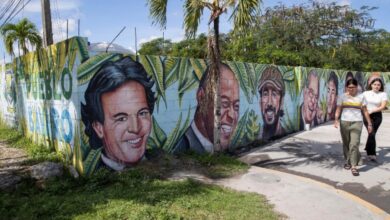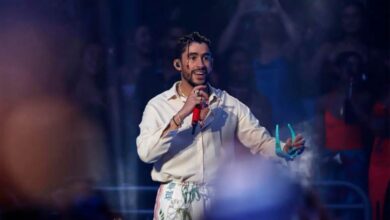The passion for soccer in Latin America is so great that its influence has permeated other aspects of daily life, such as politics. The fans have been a political force that unbalances elections.

Photo: Wikimedia-Nazzareno Zannini
LatinAmerican Post | Santiago Gómez Hernández
Listen to this article
Leer en español: El poder de las hinchadas en la política latinoamericana
The phenomenon of hoolingans in Latin America is part of the culture. In various countries in the region, these groups of fans manage to have a tacit impact on both positive and negative aspects, from social changes to problems of violence. This great influence ends up transcending into politics.
Recently, Colombia was the latest example of how many times soccer and politics in Latin America have blurred boundaries, in which it is not known when one ends and the other begins. Last weekend, a conflict between the directors of Atlético Nacional and its popular supporter group (Los Del Sur) ended with an act of violence in the stadium. The team and the ultra group had benefit agreements and logistics contracts that they decided to cancel, which appears to be the provocation for acts of violent protest. But what was striking was the position taken by the Medellín mayor's office.
Both the mayor Daniel Quintero and his Secretary of Government, Juan Pablo Ramírez, blamed the team for being co-responsible for the events. However, public opinion considers that the use of violence when Nacional canceled the agreements with Los del Sur could border on extortion. Despite these facts, the city executive took sides in favor of the hooligans. Subsequently, various media outlets disclosed contracts between members of the hooligans and the mayor's office, as well as the closeness of various members of the district and the bar. All this, just in an election year and where a group as large as Los Del Sur can be an important electoral capital.
But this is not the only case in which soccer, hooligans, and political power in Colombia or Latin America come together. Here are other clear examples where soccer and politics seem to merge.
You can also read: These Are The most militarized governments in Latin America
Junior from Barranquilla and the Char Family
Currently, the team that has the most obvious political influence in Colombia is Junior from Barranquilla. The team is the most popular (it only competes with Barranquilla FC which serves as a subsidiary) of the fourth Colombian city. Likewise, it is the most winning and with the largest fans in the entire Caribbean region. The owners of the team are the members of the Char family.
Family members, represented in Fuad, Alejandro and Arturo Char have been city mayors, governors of the department of Atlántico, Colombian congressmen and presidential candidates. It is criticized that Junior invests heavily in players at election time and that when the team goes badly, the family's political popularity falls.
However, cases like Junior in Barranquilla are not the only ones in Colombia. Deportes Tolima and former senator Gabriel Camargo also meet the condition of politics and soccer.
Boca Juniors and a President of the Nation
Another important case of politics and soccer happened in, possibly, the most passionate country in soccer in all of Latin America: Argentina. Mauricio Macri was at the time president of the Boca Juniors club, the largest and most popular in the entire country. His performance in the presidency of the xeneinze club served as a springboard to later be a presidential candidate. With a right-wing position, Macri managed to dethrone the Kirchnerism that had been in power for years and formed the bases of the current opposition (known as macrismo).
The same, and very popular these days, is the case of Hugo Moyano. This is a trade unionist (a very significant source of power in the southern country) of Truck Drivers who was also president of the Avellaneda Independent Club. A couple of days ago, he was sentenced in the first instance for not having made union contributions to the workers at the club.
A Political Idol in Mexico
Another great recognized case was that of Cuauhtémoc Blanco in Mexico. Who was an idol of the Aztec team, today is one of the most influential politicians in the country. He went from being the second top scorer for Club América and third on the national team to mayor of Cuernavaca and now governor of Morelos. As part of the ruling party of President Andrés Manuel López Obrador, Morena, Blanco came to govern one of the most densely populated states in the entire country.
A Politically Left Club
Despite the fact that this phenomenon occurs in several clubs in different countries, the case of Corinthians in Brazil is particular. The most popular club in São Paulo (and possibly one of the biggest in Brazil and the world) has strong ties to the Workers' Party. For example, after the last presidential elections in Brazil, thousands of Bolsonaro supporters came out to ignore the results. Many created roadblocks and highways. At that time, many Corinthians fans (there were also cases of "torcedores" from Atlético Mineiro) came out to remove the blockades and hung pro-democracy flags. The union is so great that the current president, the socialist Luiz Inácio Lula da Silva, has also been clear in his love for “Timao”.
The political activity of the Corinthians fans has a long history, since the 80s, when they exerted a force in restoring democracy in Brazil. So much so that the Corinthian Democracy movement was formed, close to the values of its greatest idol: Socrates, the Brazilian star who was politically active with leftist ideals.





